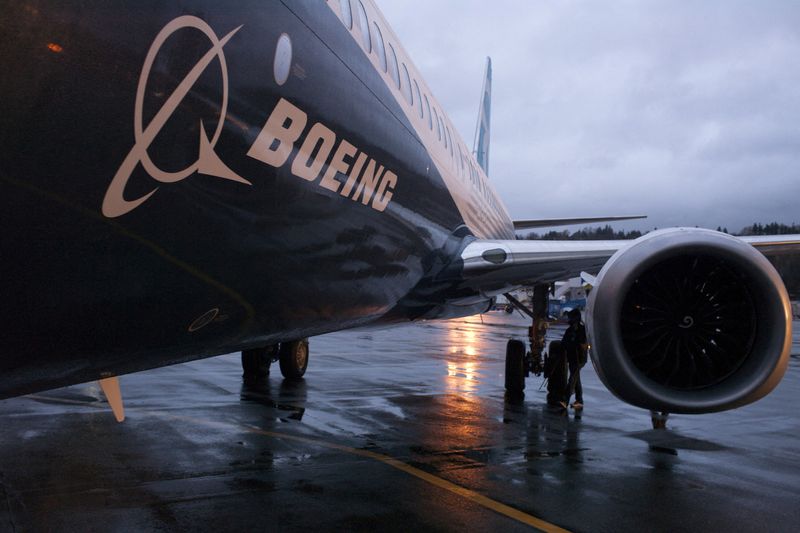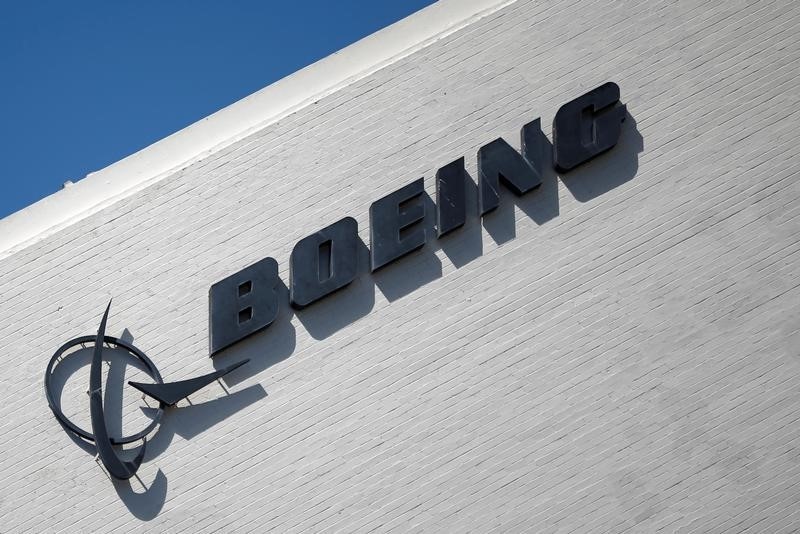By David Shepardson
WASHINGTON (Reuters) – The National Transportation Safety Board issued urgent safety recommendations on Thursday about the possibility of a jammed rudder control system on some Boeing (NYSE:) 737 aircraft after a February incident involving a United Airlines flight.
The NTSB is investigating an incident in which the rudder pedals of a United Boeing 737 MAX 8 were “stuck” in the neutral position during a landing at Newark. There were no injuries among the 161 passengers and crew.
United said the affected rudder control parts were used in only nine of the 737 aircraft originally built for other airlines. United said Thursday that the components were all removed earlier this year.
The Federal Aviation Administration said it has been closely monitoring this situation and on Friday “will convene a corrective action review board based on the NTSB’s interim recommendations and determine next steps.”
The NTSB said there are no 737s in the United States that operate with the affected actuators, which were installed in some previous-generation 737 MAX and 737 NG aircraft that had an optional landing system. United was previously the only U.S. operator using the components, the FAA said.
The NTSB recommended Thursday that Boeing notify flight crews that the rudder control system may seize due to moisture that has accumulated in the actuators and frozen, and that Boeing should “determine appropriate flight crew responses in addition to applying maximum pedal force” for such situations during flight or during landing. .
It also recommended that the FAA determine whether some actuators produced by Collins Aerospace, a unit of RTX, should be removed from aircraft and to discontinue use of the aircraft until replacement units are installed. It also wants the FAA to notify international aviation regulators if they decide the components should be removed.
Collins Aerospace determined that a bearing had been improperly installed during production of the actuators and said more than 353 actuators delivered to Boeing since February 2017 were affected by the condition, the NTSB said.
Boeing said Thursday it was reviewing the NTSB recommendations and would ensure flight crews receive appropriate guidance.

The aircraft maker said in August that it had “informed affected 737 operators of a potential situation with the rudder rollout guide actuator, which is part of an optional autoland system. The autoland system includes layers of redundancy and we are working with our supplier to develop additional guidance to address the potential condition.”
RTX said it “continued to work closely with the NTSB and Boeing on this investigation. We support Boeing and operators to mitigate the operational impact.”


